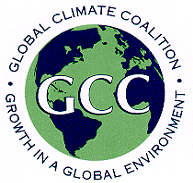
This document collection provides new insight into the GCC’s denial efforts surrounding the growing consensus that climate change impacts would have a negative effect on human health. As early as 1994, the GCC questioned if modeling was able to “quantify the cost of climate change with respect to … health.” In 1995, the GCC countered Dr. Paul Epstein of the Harvard School of Public Health, who contended that more tropical weather from global warming would lead to more tropical disease. Then, in a 1996 strategy memo to the GCC Board of Directors (BoD), the GCC flagged that, “[f]or the first time, the Administration is likely to play the health card – an unfounded argument that climate change will cause an increase in diseases and will otherwise affect the health of US citizens.”
Soon after the BoD memo, Exxon’s Barry Friedlander and Dennis Devlin presented a white paper and follow-up slide deck to STAC on, “what’s known about the relationship between climate change and risks to human health, to address: diseases affected by temperature, including strengths, weaknesses and data gaps.” Devlin’s presentation recommended identifying “scientific leaders with ‘diverse’ views” and critiquing “predictive models” to foster debate. Emphasizing “key knowledge gaps,” the presentation eschewed evidence that changes in global temperature could negatively impact natural regulatory systems, or make epidemics, like malaria, more likely. The final bullet concluded with a recommendation: “Promote Concept of Relative Risk … Significance of Climate Impacts vs. Other Disease Factors.”
These presentations inspired STAC to search for someone with, “appropriate credentials to be a spokesman for the issue … someone with a medical degree and some reputation,” they wrote. Seemingly unable to find a doctor, STAC eventually contacted two think tanks to generate opinions consistent with their members’. STAC Co-Chair Lenny Bernstein of Mobil recommended the GCC reach out to corporate-supported think tanks, the American Council of Science and Health (ACSH) and Institute for Evaluating Health Risks (IEHR), both of which were being funded by Mobil Foundation at the time. While members of the IEHR management committee overlapped with the GCC’s (i.e. Exxon and Dow Chemical), ACSH won the STAC contract to write a study countering the causal relationship between climate and human health.
As Exxon scientist Devlin suggested, the GCC targeted climate science modeling, emphasized health problems unrelated to climate, and highlighted dissenting opinions that validated the GCC’s stance in that document.
The GCC eventually received editorial discretion over the final copy of the ACSH paper it funded, but the final product was never explicitly distributed in the documents we have available. However, in 1997, ACSH published “Global climate change and human health” which matched the subject and description of the STAC grant. However, the report disclosed no funding or support from the GCC or any other corporate entity or representative. The ACSH report stressed that any correlation between climate change and human health was “hypothetical,” estimated, or underdeveloped. The report also held that sustaining fossil fuel consumption would be better for human health than any reduction in fossil fuel consumption to combat theoretical climate change.
As Exxon scientist Devlin suggested, the GCC targeted climate science modeling, emphasized health problems unrelated to climate, and highlighted dissenting opinions that validated the GCC’s stance in that document. Two months after Devlin’s presentation, the GCC wrote in a position statement, “[c]oncerns that climate change might be the cause of various health problems rests on a number of unproved assumptions.” In conclusion, the document labeled other issues more-deserving of regulatory attention, “climate change is a marginal factor in the broad range of public policy options that should be examined in addressing health concerns around the globe.” The GCC republished that position statement in 1997.
Return to Global Climate Coalition main page.
View and download the full report: Global Climate Coalition: Big Business Funds Climate Change Denial and Regulatory Delay.
